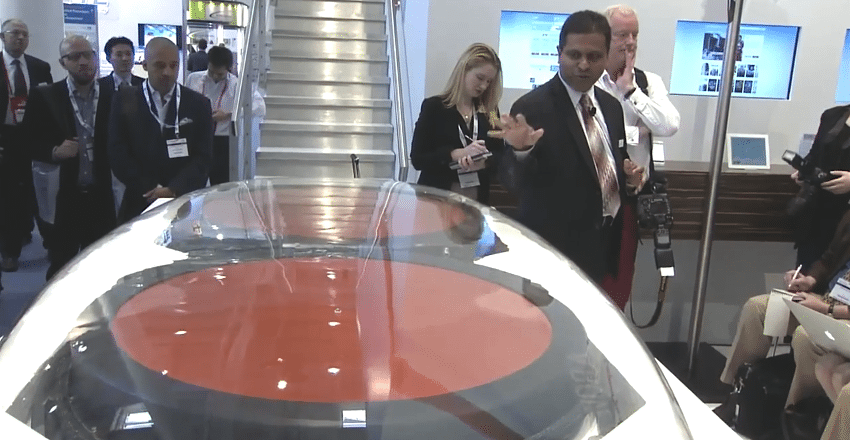American Airlines Suit Against Gogo Is Latest Development in Race to Offer Fastest Wi-Fi

Skift Take
American Airlines is suing its connectivity provider Gogo for the right to switch providers to ViaSat, which supplies high-speed inflight Wi-Fi to JetBlue, and select United Airlines and Virgin America aircraft.
As the Star-Telegram reports American Airlines claims in its suit that its contract with Gogo allows a renegotiation, or cancellation of existing agreements if a competitor offers better service.
“After carefully evaluating the new technology and services in the marketplace, American has decided to exercise its rights under the Agreement and recently notified Gogo that ViaSat offers an in-flight connectivity system that materially improves on Gogo’s air-to-ground system,” the suit states.
Gogo Reacts
Gogo has shared a formal statement with Skift on the dispute indicating that the company received notice of the action last Friday, but declines to comment on its merits.
Gogo does say, however:
“[W]e would like to note that American is a valued customer of ours and that we look forward to resolving the disagreement regarding contract interpretation that led to this declaratory judgment action.”
The company also provides some background on the matter saying that the “rapid pace of technological development” in the industry’s Wi-Fi sector means that its airline customers expect “to take advantage of advances in technology.”
Gogo adds, “We understand and support that. Our contract with American contains a provision that addresses this expectation. Under the provision, if certain conditions are satisfied, including if a competitor offers connectivity services that materially improve on the Gogo early generation air to ground system that American has chosen to use on certain fleets, American can notify us.
“If American gives the notice required by the contract, we have the opportunity to submit a competing proposal—for any technology in our portfolio. If we decline to submit a proposal, or if American reasonably determines that our proposal is less favorable than the competitor’s, American may elect to terminate the contract with respect to the aircraft that are the subject of the notice.”
Gogo also confirms that it was notified of the suit by American Airlines and that it was aware that American considered the competing ViaSat product as offering “a material improvement” over Gogo’s early generation air-to-ground service, which is presently installed on approximately 200 aircraft of American’s fleet.
“We plan to submit a competing proposal to install our latest satellite technology—2Ku—on this fleet. We believe that 2Ku is the best performing technology in the market and look forward to discussing our offer with American,” Gogo indicates in its official statement on the matter.
Gogo celebrated a major installation milestone just last week having reached 11,000 connected aircraft, 1100 of which were added in 2015 alone with 800 aircraft committed to install its new 2Ku connectivity product.
“Gogo’s operational capabilities are second to none. Whether that’s navigating the regulatory environment, installing equipment on a wide range of fleet types or servicing those aircraft wherever they might fly around the globe, we’ve built an organization around operational excellence that’s unmatched in the industry,” said Michael Small, Gogo’s president and CEO at the time of the announcement. “We will continue to make significant investments in our operational capabilities.”
Gogo also announced at the end of January that its Gogo Vision product entertainment product had been installed on more than 2,000 aircraft. The product is core to Delta airline’s domestic inflight entertainment offerings.
Exede Competition
ViaSat is the supplier of the Exede high-speed satellite connectivity service first introduced in aviation to power JetBlue’s popular Fly-Fi connectivity and more recently introduced on select Virgin America aircraft which allowed the airline to offer Netflix streaming onboard.
The company tells Skift that the company is discussing installations with airlines about its Exede in-flight Wi-Fi product, but cannot comment on American Airlines or their contractual agreements.
However ViaSat has long stated that Exede, which won a Crystal Cabin Award for innovation during last year’s Aircraft Interior Expo in Hamburg, can compete in the market with Gogo’s 2Ku platform, despite a current disadvantage in the number of aircraft installed with the respective services.
“It boils down to how much capacity you have,” Don Buchman, vice president and general manager, Commercial Mobility Business, ViaSat, said in a previous interview with this reporter. “Everyone says you have speed. We have speed too, but it’s only relevant in terms of a lot of capacity. If you don’t have a lot of capacity, you can’t maintain speed for more than a few people. Capacity is guided by the satellites … we [have] 140 Gbps capacity in the satellite. A Ku-transponder will probably have 40 Mbps [capacity].”
Buchman also said in a panel on Wi-Fi connectivity during the IATA World Passenger Summit in Hamburg last year:
“We’re the last Frontier here in aviation. We’re just at the beginning of reaching those levels of connectivity, of Wi-Fi, that we as a society have grown to expect. And all of us are doing enormous investment right now to make it better, faster and more capable in the future. So the right technology is on the horizon. We’re all investing to get there, and it’s going to be evolving very quickly.”
Skift has reached out to American Airlines for further comment but had not heard back at the time of this report.




